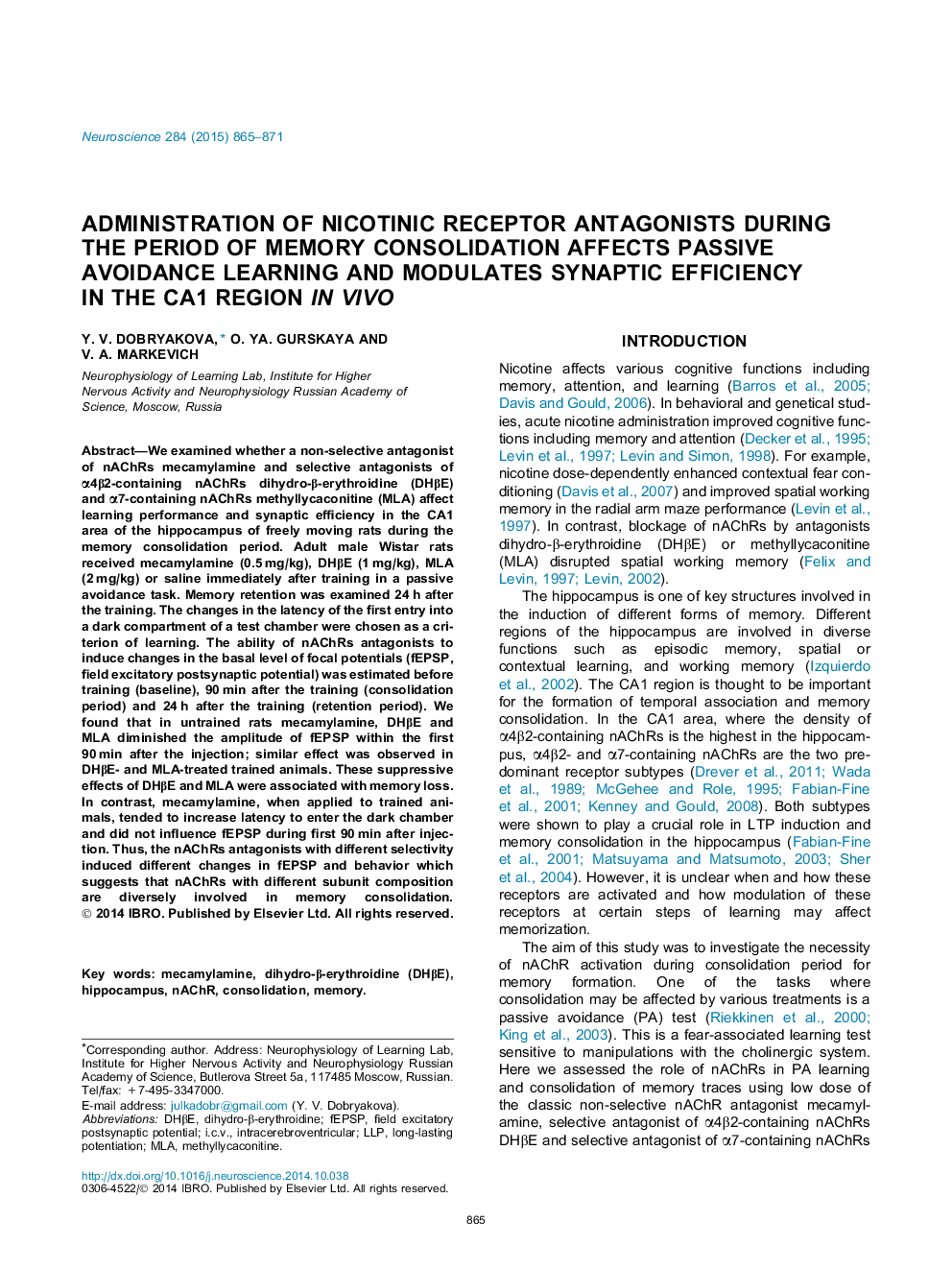| کد مقاله | کد نشریه | سال انتشار | مقاله انگلیسی | نسخه تمام متن |
|---|---|---|---|---|
| 6272935 | 1614792 | 2015 | 7 صفحه PDF | دانلود رایگان |

- Mecamylamine, DHβE and MLA affect learning and efficacy of synaptic transmission.
- Mecamylamine decreased fEPSP amplitude during first 90Â min only in untrained rats.
- In trained rats, 24Â h after the mecamylamine injection, the fEPSP amplitude was increased.
- Post-training injection of mecamylamine tends to improve memory consolidation.
- Post-training injection of DHβE and MLA impairs memory consolidation.
We examined whether a non-selective antagonist of nAChRs mecamylamine and selective antagonists of α4β2-containing nAChRs dihydro-β-erythroidine (DHβE) and α7-containing nAChRs methyllycaconitine (MLA) affect learning performance and synaptic efficiency in the CA1 area of the hippocampus of freely moving rats during the memory consolidation period. Adult male Wistar rats received mecamylamine (0.5 mg/kg), DHβE (1 mg/kg), MLA (2 mg/kg) or saline immediately after training in a passive avoidance task. Memory retention was examined 24 h after the training. The changes in the latency of the first entry into a dark compartment of a test chamber were chosen as a criterion of learning. The ability of nAChRs antagonists to induce changes in the basal level of focal potentials (fEPSP, field excitatory postsynaptic potential) was estimated before training (baseline), 90 min after the training (consolidation period) and 24 h after the training (retention period). We found that in untrained rats mecamylamine, DHβE and MLA diminished the amplitude of fEPSP within the first 90 min after the injection; similar effect was observed in DHβE- and MLA-treated trained animals. These suppressive effects of DHβE and MLA were associated with memory loss. In contrast, mecamylamine, when applied to trained animals, tended to increase latency to enter the dark chamber and did not influence fEPSP during first 90 min after injection. Thus, the nAChRs antagonists with different selectivity induced different changes in fEPSP and behavior which suggests that nAChRs with different subunit composition are diversely involved in memory consolidation.
Journal: Neuroscience - Volume 284, 22 January 2015, Pages 865-871